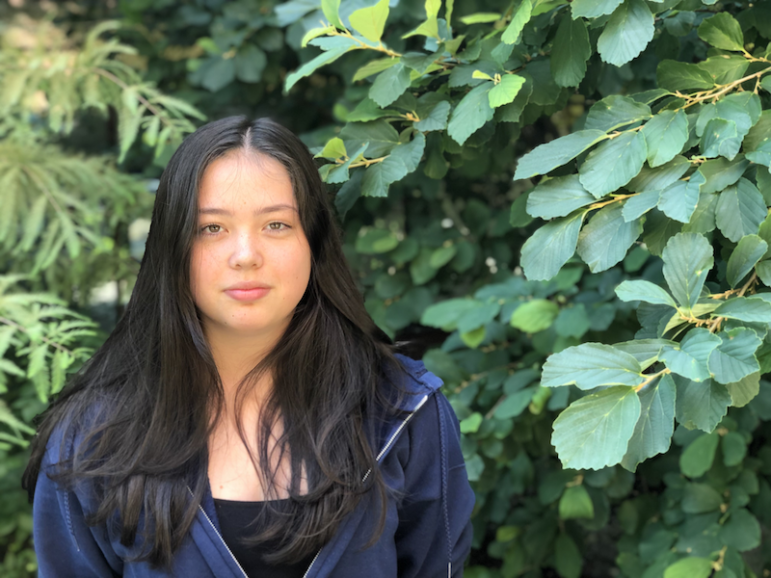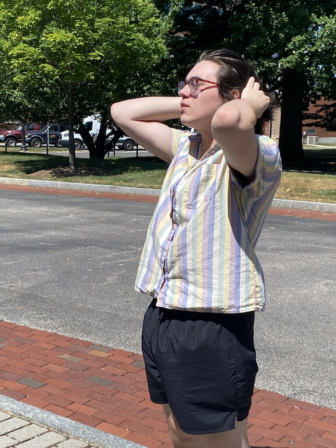Protests, brought about by the campus’s rates of sexual assault, have swirled around the University of Connecticut since Alexandra Docken’s viral protest in February of her rape investigation. UConn’s subsequent investigation has raised questions and prompted distrust among some prospective students.
In the most recent Clery crime report from the university, taken in 2020, there were seven reported cases of rape on the main Storrs campus and five cases of sexual harassment on the UConn Health campus in Farmington.

Avery Santos Photo.
Kathryn Torla
Docken, from Cockeysville, Maryland, told Hearst Connecticut Media that she filed a Title IX complaint with UConn after she was sexually assaulted by a male student at an off-campus party in August 2021. She said she was discouraged by the school’s investigation of her claim and said there should be “major changes” in how these cases are handled. At the time, a UConn spokeswoman said the university could not discuss individual cases.
Docken’s story has raised questions about the true number of cases reported. Particularly, a photo of her with a sign stating that only 3.75% of reported cases of sexual assault and rape were investigated has drawn concern. The fact that all were found not guilty drew outrage on social media.
According to UConn’s most recent statistics, there were 80 sexual assault incidents reported to the state in 2020, 34 of which took place that year. This is where Docken draws the 3.75% statistic from only three cases that would be investigated of the 80 reported in that year. Both these statistics were reported in UConn’s annual state report from 2020.
Ahlanni Colon and Felia Merino are incoming freshmen who say they are concerned about the UConn’s handling of the Docken case. They heard about the case on Instagram.
Merino said the university should do more to actively address the issue of sexual harassment.
“They talk about it, but I don’t see a lot of action,” Merino said.
For new students, the university’s image is tied to this investigation; Colon said that cases of sexual assault are “hidden” and “underground.” Docken’s protest brought to light more stories of students who had been overlooked by university investigations. Walkouts broke out, showing support for Docken and their desire for changes.
This is not the first time UConn’s handling of assault has been spotlighted. In 2014, the university had 43 reported cases of rape, tying for the highest rate of rape on university campuses in the United States.

Karen Benavidez Photo.
Coleman Toomey
UConn’s online resources provide quick information that can help survivors of sexual crimes, but this has not changed the perception among some that the university’s actions are surface level.
“I don’t think they handle it as well as they talk about,” Wilfred Wisdom, another incoming student, said. “I think they’re more vocal rather than [finding solutions].”
A spokesperson for the university, Michael Enright, said the university’s priorities lie with connecting students through UConn’s resources.
“UConn takes reports of sexual assault very seriously,” Enright said. “Our priority is to…empower students to make their own decisions throughout any investigation processes they may choose to pursue.”
UConn’s investigation process has been criticized for a lack of consistency. Ultimately, though, students’ safety is still tied to how UConn handles these reports, some incoming students said.
“I feel like they need to be doing more to change,” Colon said. “More action. I don’t see a lot.”
If victims need support, UConn students can go on campus to the Office of Institutional Equality and online outlets like UConn’s Title IX page. The National Sexual Assault Hotline is 1-800-656-4673.
Kathryn Torla is a student at Conard High School, West Hartford, and Coleman Toomey is a student at Tolland High School.